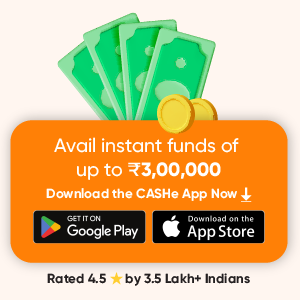India is one of the largest markets for motorcycles in the world with about 13.5 million bikes sold in the year 2022. Whether you wish to purchase a sports bike or a cruiser bike, you can always avail of bike loans provided by various financial institutions and banks. However, there are certain loan requirements you need to fulfil for your loan application process. It could be in terms of documents, age criteria, and other eligibility. These requirements serve as a testament to the fact that you have maintained financial discipline and are stable to repay monthly instalments over time. The documents you submit also help the bank or the lender verify your identity. So, let’s talk about two-wheel loan qualifications in detail and learn about the list of required documents.
What Documents Are Required for a Two-Wheeler Loan?
When applying for a two-wheeler loan, the specific documents required may vary slightly depending on whether you are a salaried person or a self-employed individual. Here’s a breakdown of the eligibility documents usually needed for each category:
Documents Required for a Salaried Person:
Identity Proof:
Aadhar Card
Passport
Voter ID Card
Driver’s License
Address Proof:
Utility Bills (electricity, water, gas) in your name
Rent Agreement, only if you are a tenant
Bank Statements with current address
Income Proof:
Salary Slips for the last 3-6 months
Bank Statements for the last 6 months showing salary credits
Form 16 or Income Tax Returns (ITR) for the previous financial year
Age Proof:
Birth Certificate
School/College Leaving Certificate
PAN Card
Photographs:
Recent passport-sized photographs
Loan Application Form:
Complete the lender’s two-wheeler loan application form with accurate personal and financial details.
Vehicle Documents:
Details of the two-wheeler you intend to purchase, including the invoice, insurance documents, and other related paperwork.
Credit Score Report:
A copy of your credit report from a credit bureau like Cibil to demonstrate your creditworthiness.
Documents Required for a Self-employed Person
Along with the above-mentioned documents, the applicant also needs business registration documents, a shop and establishment certificate, and a GST registration certificate.
Eligibility Criteria for Two-Wheeler Loan
Meeting the eligibility criteria is quite important when you are applying for a two-wheeler loan. It is because lenders and banks use these criteria to evaluate your creditworthiness and determine whether you qualify for the loan.
Age Criteria:
You must be of legal age to apply for a loan, which is usually 18 years or older. However, some lenders may have specific age criteria, such as 21 or 23 years, depending on their policies.
Income Stability:
Lenders assess your income stability to ensure you can repay the loan. Salaried individuals and self-employed applicants may have different income stability requirements. However, irrespective of all that, a stable source of income is a primary consideration.
Credit Score:
Your credit score is a significant factor during loan requirements. Lenders prefer applicants with a good credit history as it signifies their ability to manage debt responsibly. A higher credit score often results in better loan terms and lower interest rates.
Employment Status:
Lenders may require you to be employed with your current employer for a specific period, usually six months to a year. Self-employed applicants should provide proof of their business or income stability, such as ITRs and business registration documents.
Residence Stability:
Some lenders may consider the stability of your residence. Having a permanent address or a stable rental history can be advantageous.
Loan Amount vs. Income Ratio:
Lenders often have a maximum permissible ratio of the loan amount to your income. If your monthly loan instalment exceeds a certain percentage of your income, you may be deemed ineligible or offered a lower loan amount.
Employer Type:
The type of employer you work for can influence eligibility. Lenders may have a preference for employees of reputable companies or government organisations.








